Getting Married
Many people believe that getting married early is the best choice, but it's important to weigh the pros and cons before making such a big decision. Understanding your own needs and timing can help you determine the right moment to start a family.


Pregnancy in your twenties is often seen as an ideal time, as fertility is at its highest and conception tends to be easier. Additionally, your body’s physical resilience is at its peak, making it easier to navigate the physical demands of pregnancy.
Early Stages
Financial stability could be a challenge if you're still in the early stages of your career or managing limited resources. With the pressures of building a professional foundation, budgeting for a child might feel overwhelming.


For those still paying off student loans or working part-time, the financial strain can be even greater. Many individuals in their 20s are navigating career growth and may require additional savings or a full-time job to properly support a growing family.
More Resilient
In your twenties, your body is naturally more resilient, with a reduced risk of complications during pregnancy and a quicker recovery after childbirth. Many women fear their bodies may never return to how they were before, but the reality is different.


With youthful energy, the chances of a healthy pregnancy and successful delivery are higher. Additionally, the body in its twenties regenerates cells at an accelerated pace, helping maintain its strength and vitality.
Personal Growth
In your twenties, the balance between personal growth and the responsibilities of parenthood can be difficult to manage, as life experience and emotional maturity are still developing. This can make navigating the challenges of raising a child more overwhelming.


At this stage, emotional and mental maturity may not be fully formed, potentially leading to difficulties in handling the pressures of parenthood. If you're feeling overwhelmed, it's important to know that support is available, and helplines are there for anyone in need of someone to talk to.
Heightened Energy
Raising children with heightened energy and flexibility makes it easier for parents to stay engaged with their child’s needs and activities. However, balancing personal aspirations with the responsibilities of parenting can be a tough challenge to navigate.


Having children at a younger age offers the opportunity for shared experiences and mutual growth. As both parents and children grow together, there’s a unique chance to bond through life’s milestones and enjoy the journey as a team.
Social Support
Your social support network can vary based on your life circumstances. If you're in the early stages of your career, you might find that many of your friends are preoccupied with their own professional or personal pursuits, leaving you with limited support.


On the other hand, if you come from a traditional nuclear family, support networks may be more accessible. In this case, friends and family are typically at similar life stages, making it easier to lean on each other for guidance and encouragement.
Extended Fertility Window
With an extended fertility window, you have the option to expand your family over a longer period, should you wish to. If your finances permit, you can plan your parenthood journey and have more children when it suits you.


Physical recovery after childbirth tends to be faster, thanks to the body’s natural ability to bounce back. This means that life in your forties can be more manageable, giving you additional time to focus on yourself and your personal goals.
Financial Resources
Limited financial resources can require lifestyle adjustments and delay the achievement of personal goals. Financial stress often comes from the responsibility of supporting a growing family while working towards building a stable future.


Having the support of your parents while saving for your future can be a significant advantage. It also increases the chances of your children benefiting from healthy and active grandparents, contributing to their happiness and well-being.
Limited Life
Having limited life experience can create difficulties when making crucial decisions about a child's well-being. Waiting until you're in your thirties to have your first child may offer more stability and maturity, allowing you to better navigate the responsibilities of parenthood.


While you might feel prepared for parenthood, a lack of real-life skills can hinder your ability to manage its challenges. Limited experience can lead to a lack of perspective and coping strategies, making it harder to handle the demands of raising a child.
Different Ages
Pregnancy at different ages comes with distinct benefits and challenges. The choice to start a family should depend on personal health, life circumstances, and your readiness to take on the responsibilities of parenthood.


In your thirties, a key advantage is financial stability. By this stage, you may have solidified your career and accumulated resources to support a child. While fertility tends to decline during this time, the added financial security can help navigate challenges, such as exploring fertility treatments if needed.
Approaching Your Thirties
As you approach your thirties, fertility naturally begins to decline, which can make conception more difficult and may require medical assistance. The likelihood of needing interventions such as IVF increases, making it crucial to be aware of the challenges ahead.
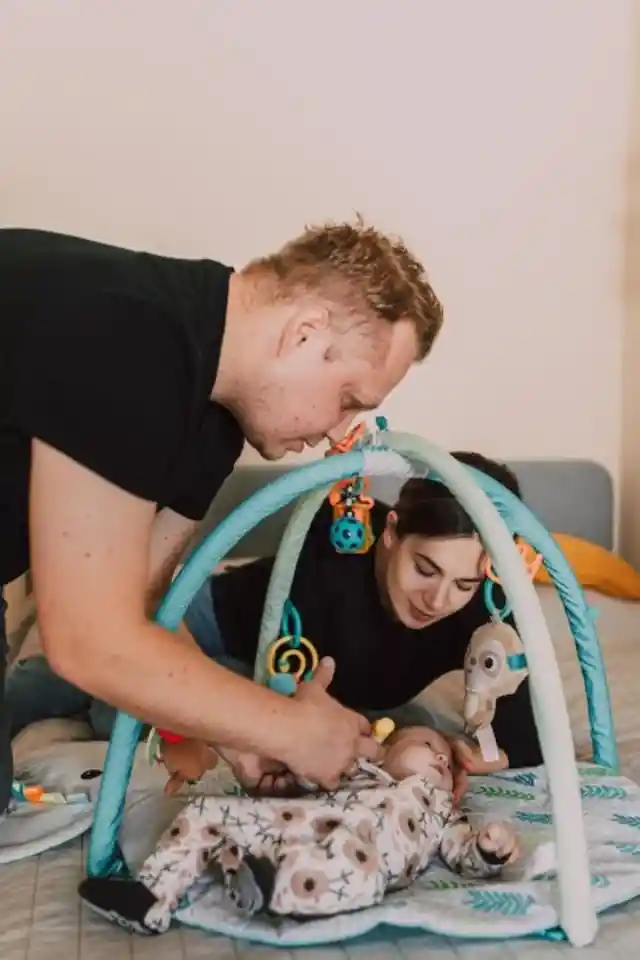

If you’re considering In Vitro Fertilization (IVF), it’s essential to do thorough research. With advancements in medical technology, there are various fertility treatments available, giving hopeful parents more options to achieve their dream of having a child.
Know It All
One of the best positive aspects of having a child in your thirties is the increased emotional maturity and life experience that can contribute to better decision-making and effective parenting.


You have reached most of your personal goals by then and can take care of a child. Increased emotional maturity and life experience contribute to better decision-making and coping skills.
Abnormalities Occur
Later on, there is a higher risk of pregnancy complications and certain genetic conditions, necessitating extra medical care and monitoring.
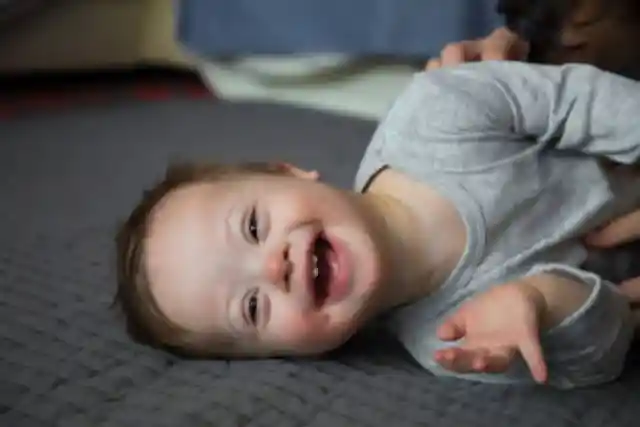

Most older mothers are scared of having a child developing Down Syndrome in the womb. It is something that happens in 1 out of every 200 babies born from mothers over the age of 35. There is always the risk of that happening.
Is It Worth It
You need to consider the potential to have a second child while still in your 30s, if desired, before fertility further declines. There is a lot to consider if you are alone and intend on being a single parent.
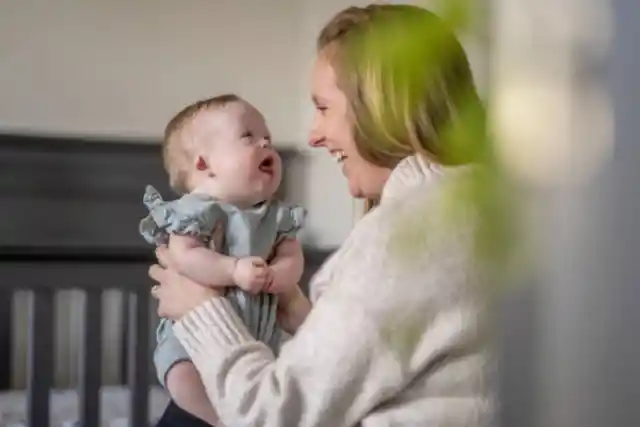

Talk to your friends and family. A wider social support network with friends and colleagues who may also be starting families can give real advice.
Thrifty Thirties
Usually, you are well-established in your career during your thirties. This means that you already have important responsibilities regarding your work.
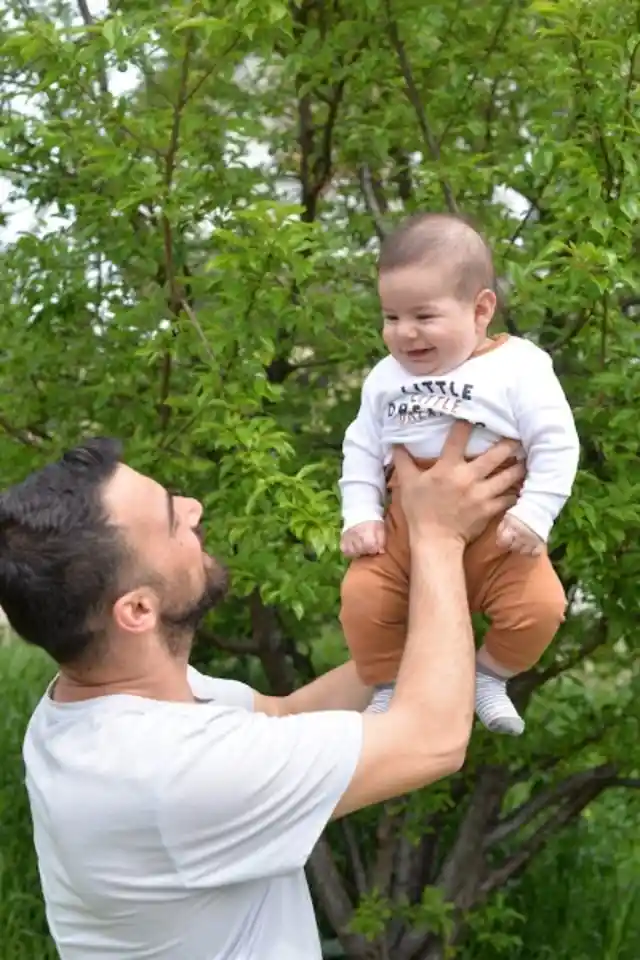
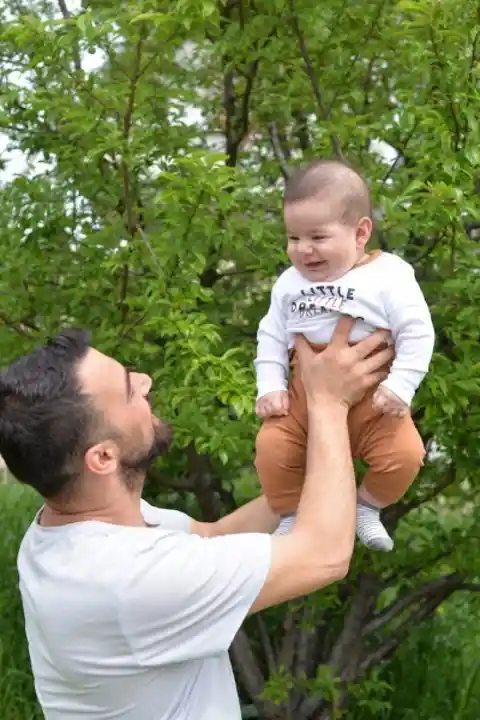
Juggling career demands and parenting responsibilities can lead to increased stress and the potential for burnout. Plan your time properly and set goals for five years in advance to incorporate the child’s growth and school life.
In The Bank
More financial resources may allow for a wider range of educational and extracurricular opportunities for the child. Greater financial stability, as individuals in their 30s are more likely to have established careers and a steady income.


This also ensures more stability in relationships, providing a secure foundation for raising children. Make sure that they know the value of hard-earned money too!
The More The Merrier
Limited time for personal pursuits and self-care, as parenting responsibilities can be all-consuming. Balancing personal goals and parenting becomes more manageable due to a deeper understanding of self.


More comprehensive support systems are often in place, including reliable friendships and extended family. It is often said that “it takes a village to raise a child,” so you need to choose your people wisely.
Putting The Work In
The body may take longer to recover after childbirth due to decreased physical resilience compared to younger years. Higher risks of pregnancy complications, such as gestational diabetes and high blood pressure.


You can try to counter this by preparing your body for pregnancy beforehand. Start a year before by taking supplements, exercising, and following a healthy diet with extra fruit and vegetables.
Put It On Paper
Balancing the demands of parenting with aging parents' needs can create additional challenges and stress. The pressures of career advancement and family planning can create a sense of time urgency.


Make sure your affairs are in order before bringing a child into the equation. The potential for increased stress due to the juggling act of career, family, and personal aspirations. This is why some people prefer having a child after they have fulfilled all of their personal goals in life.
An Older Mother
In your forties, there is almost always greater financial stability and more life experience can provide a secure environment for raising a child. This is probably the best perk of waiting to have a child.


Having an established career can provide financial security and flexibility in managing family responsibilities. You would be able to give your child opportunities that you never had.
Flailing Forties
The worst aspect of having a child later in life is that fertility significantly declines, with increased difficulty conceiving and a higher risk of pregnancy complications. There are increased risks of pregnancy complications and birth defects due to age-related factors.


Some couples struggle to conceive for many years and only end up falling pregnant later in life, everybody is different.
Knowing More
One of the best feelings of growing up is emotional maturity and stability which contribute to a calmer and more patient parenting style. Emotional maturity and life experience enable better preparedness for the challenges of parenting.


There is a sense of fulfillment and readiness for parenthood after exploring personal goals and aspirations. There are many self-help books available to help you be a better parent and relate to your child.
Not As Young As You Used To Be
The worst aspect of older parenting is the increased risk of chromosomal abnormalities and genetic disorders in the baby. If this happens it would require more prenatal testing and monitoring.
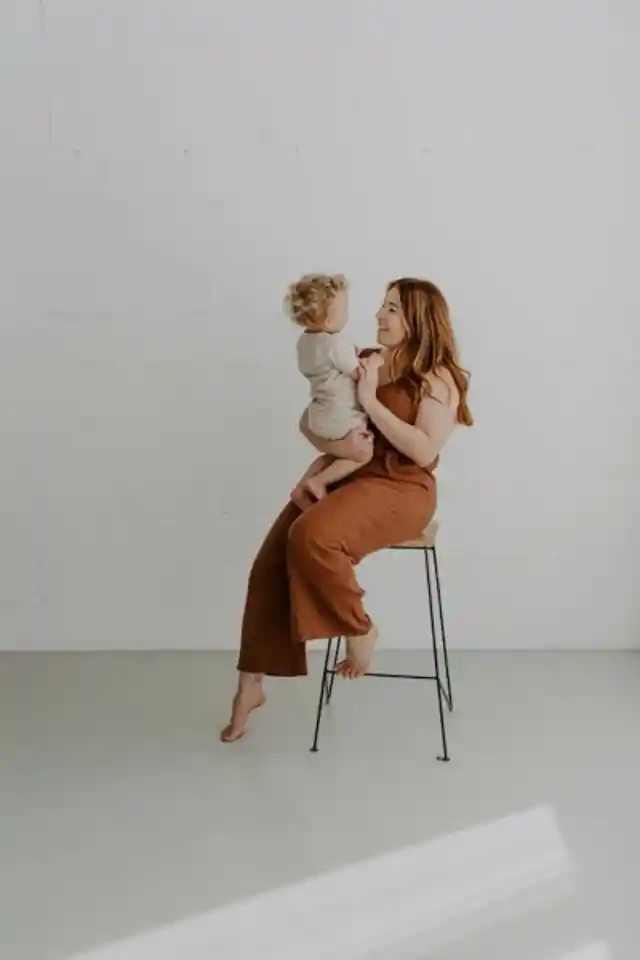
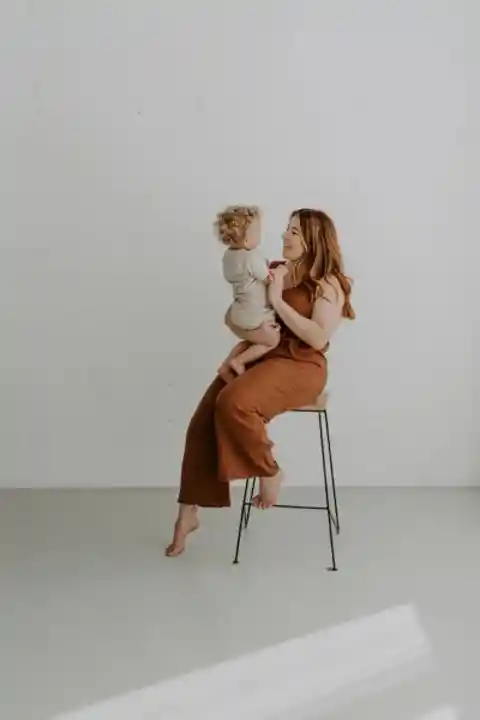
Older mothers are scared that their fertility declines significantly, leading to lower chances of conceiving naturally and higher reliance on fertility treatments. It’s a risk many take just to conceive a child of their own naturally.
A Great Network
Most people have a strong group of friends or colleagues by their forties. A well-established social support network, with friends and family who are also in the parenting stage of life.


If you don’t have much family, there are social groups like Mommy and me baby classes that can teach you to integrate your child into society. Support systems are often solidified, offering reliable assistance during the journey of parenthood.
Be Stronger
The physical demands of pregnancy and caring for a newborn can be more challenging, as energy levels decrease. The potential for generational gaps between parents and children, which may affect shared experiences and understanding.


It becomes easier to cope with the physical and emotional demands of parenting while navigating the challenges of middle age. It’s a good idea to eat well, exercise regularly, and keep a healthy mental state too.
Trust Fund Baby
Many older parents say that their financial resources and established careers provide stability for their child's future and educational opportunities. They can spend more quality time with their children because they don’t have to work regular 9-5 jobs.


Financial stability is often well-established, allowing for greater resources to support a growing family. Consider saving a good amount before bringing a child into this world.
Taking Extra Care
Increased health risks for the mother, including gestational diabetes, high blood pressure, and cesarean delivery. Older mothers need to go for regular checkups to ensure their bodies can handle a late pregnancy.


Balancing the physical demands of pregnancy and parenting can be more taxing due to reduced energy levels. Older mothers need to think carefully before putting their bodies through the exertion.
All For You
Being an older parent has many perks too. The child can benefit from the wisdom and life experiences of older parents.
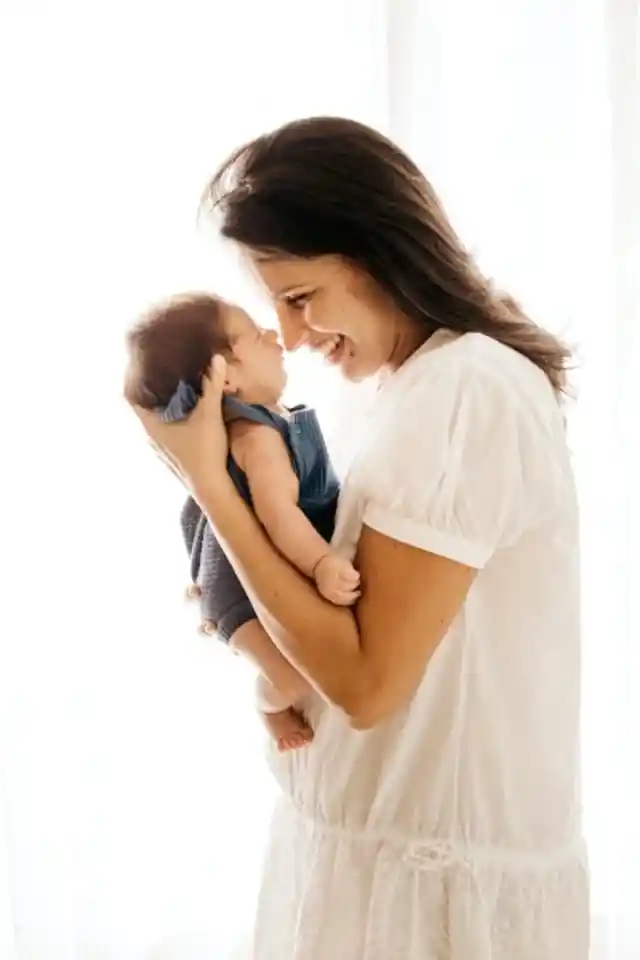
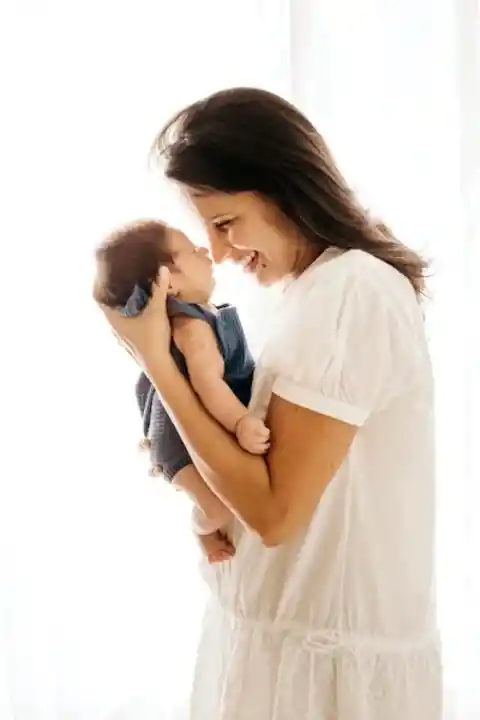
By the time you are in your forties, you will have a lifetime of stories and adventures to teach your child. This can also prepare them to grow in a happier environment where they want to be like their parents.
It’s Just Us
Balancing parenting with approaching retirement age and potential concerns about being available for the child's long-term needs.


Usually, most of your friends are also older and cannot help you out as much. There is always the option to hire help. There are wonderful childcare options available nowadays and this can be quite enriching for your child.
Perpetual Parenting
In the realm of motherhood, the journey of pregnancy varies greatly depending on the age at which it occurs. These distinctive pros and cons of conceiving in one's 20s, 30s, and 40s, shed light on the diverse experiences encountered along the way.


Each stage of life brings its own unique set of advantages and challenges when it comes to pregnancy. Regardless of age, embracing the journey with love, support, and adaptability can be an amazing experience.